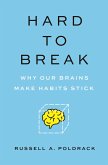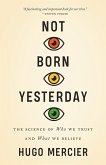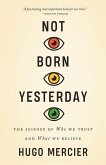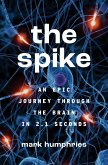We make up our minds about others after seeing their faces for a fraction of a second - and these snap judgments predict all kinds of important decisions. For example, politicians who simply look more competent are more likely to win elections. Yet the character judgments we make from faces are as inaccurate as they are irresistible; in most situations, we would guess more accurately if we ignored faces. So why do we put so much stock in these widely shared impressions? What is their purpose if they are completely unreliable? In this book, Alexander Todorov, one of the world's leading researchers on the subject, answers these questions as he tells the story of the modern science of first impressions. Drawing on psychology, cognitive science, neuroscience, computer science, and other fields, this accessible and richly illustrated book describes cutting-edge research and puts it in the context of the history of efforts to read personality from faces. Todorov describes how we have evolved the ability to read basic social signals and momentary emotional states from faces, using a network of brain regions dedicated to the processing of faces. Yet contrary to the nineteenth-century pseudoscience of physiognomy and even some of today's psychologists, faces don't provide us a map to the personalities of others. Rather, the impressions we draw from faces reveal a map of our own biases and stereotypes.
"Faces are what newborns naturally seek. They are the objects of our love, trust, fear, longing, and memory. They inspire poetry and the visual arts. We rely on faces to reveal mood and character, allowing them to influence hiring decisions, criminal convictions, and elections. In this magisterial work, Todorov takes us on a tour of the face, its role in human affairs, and its power to influence and mislead. You'll always look at faces, but never the same way again." - Eldar Shafir, coauthor of Scarcity: The New Science of Having Less and How It Defines Our Lives








